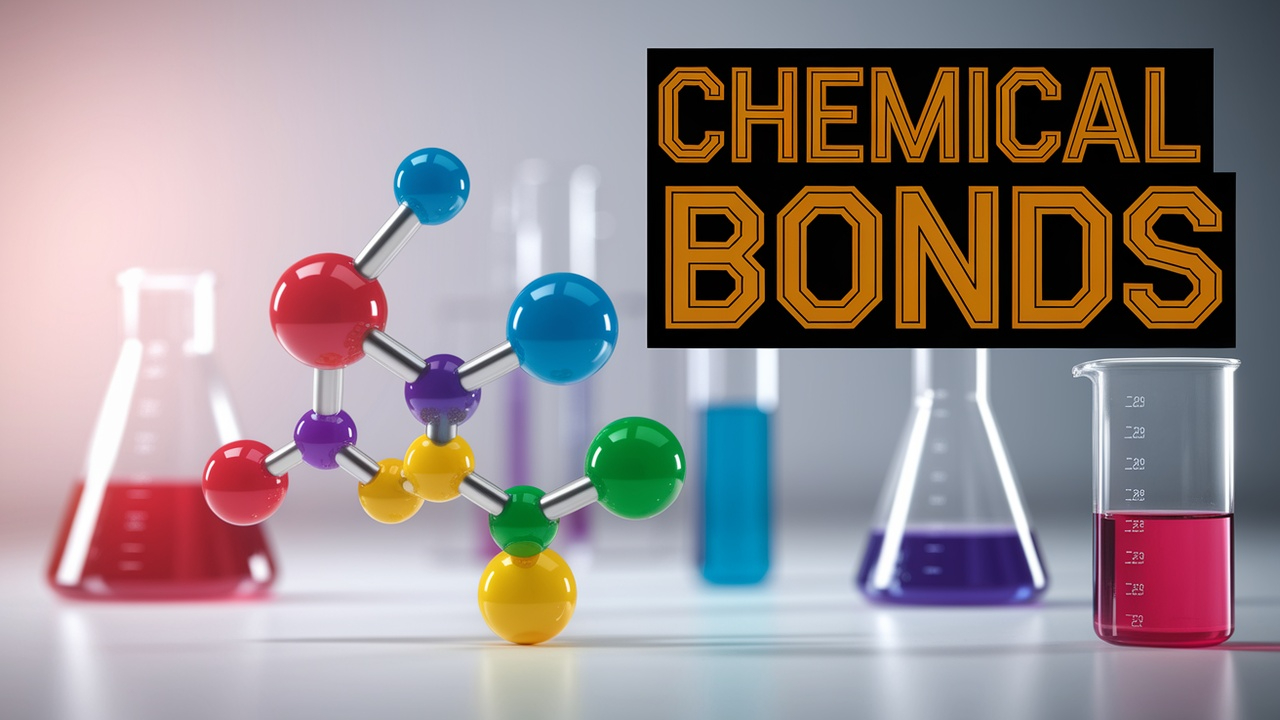
This course delves into the revolutionary concepts of chemical bonding introduced by Linus Pauling, exploring the nature of covalent and ionic bonds, hybridization, and resonance structures. Students will gain a comprehensive understanding of molecular geometry and the implications of Pauling's theories on modern chemistry.
Course Levels
-
Level 1: Introduction to Chemical Bonding
This level introduces the basic concepts of chemical bonding, including the types of bonds and their significance in chemistry.
-
Level 2: The Nature of Ionic and Covalent Bonds
This level focuses on the characteristics of ionic and covalent bonds, including their formation, strengths, and properties.
-
Level 3: Hybridization and Molecular Geometry
This level covers the concept of hybridization and its impact on molecular geometry, illustrating how atomic orbitals combine to form new hybrid orbitals.
-
Level 4: Resonance and Bonding Theories
This level explores the concept of resonance and its importance in understanding the behavior of certain molecules and ions.
-
Level 5: Advanced Bonding Theories
This level examines advanced topics in chemical bonding, including molecular orbital theory and its relationship with Pauling's theories.
-
Level 6: Pauling's Legacy and Modern Implications
This level discusses the lasting impact of Linus Pauling's work on contemporary chemistry and its implications in various scientific fields.
Course Topics
-
Topic 5: Future Directions in Bonding Theories
# Future Directions in Bonding Theories ## Introduction As the field of chemistry evolves, so too does our understanding of chemical bonding. The theories developed by Linus Pauling have laid a stron...
-
Topic 4: The Impact of Pauling's Research on Material Science
# The Impact of Pauling's Research on Material Science Linus Pauling, a pivotal figure in the field of chemistry, made groundbreaking contributions that significantly influenced material science. His...
-
Topic 5: Applications of Ionic and Covalent Bonds in Real Life
# Applications of Ionic and Covalent Bonds in Real Life Chemical bonds, specifically ionic and covalent bonds, play crucial roles in various real-life applications. Understanding these applications h...
-
Topic 5: Importance of Chemical Bonding in Molecules
# Importance of Chemical Bonding in Molecules Chemical bonding is a fundamental concept in chemistry that explains how atoms combine to form molecules. Understanding chemical bonding is crucial as it...
-
Topic 5: Implications of Hybridization in Chemical Reactions
# Implications of Hybridization in Chemical Reactions Hybridization is a fundamental concept in understanding molecular geometry and bonding in chemistry. It allows for the mixing of atomic orbitals ...
-
Topic 4: Overview of Linus Pauling's Contributions
# Overview of Linus Pauling's Contributions Linus Pauling was a prominent figure in the field of chemistry and is widely recognized for his groundbreaking work in chemical bonding and molecular struc...
-
Topic 4: Comparison of Ionic and Covalent Compounds
# Comparison of Ionic and Covalent Compounds ## Introduction Understanding the differences between ionic and covalent compounds is fundamental in the study of chemical bonding. Both types of compound...
-
Topic 1: What is a Chemical Bond?
# What is a Chemical Bond? Chemical bonds are the forces that hold atoms together in compounds. Understanding these bonds is essential for grasping the fundamentals of chemistry and the behavior of m...
-
Topic 3: VSEPR Theory and Molecular Shapes
# VSEPR Theory and Molecular Shapes ## Introduction VSEPR, or Valence Shell Electron Pair Repulsion theory, is a model used in chemistry to predict the geometry of individual molecules based on the n...
-
Topic 5: Resonance and Acidity/Basicity
# Resonance and Acidity/Basicity Resonance is a fundamental concept in chemistry that describes the delocalization of electrons in molecules and ions. It plays a crucial role in determining the stabi...
-
Topic 3: Applications of Resonance in Chemistry
# Applications of Resonance in Chemistry Resonance is a fundamental concept in chemistry that describes the delocalization of electrons within molecules. This phenomenon is crucial for understanding ...
-
Topic 5: Limitations of Molecular Orbital Theory
# Limitations of Molecular Orbital Theory Molecular Orbital Theory (MOT) is a fundamental theory in quantum chemistry that describes the electronic structure of molecules. While it provides profound ...
-
Topic 3: Pauling's Work in Structural Biology
# Pauling's Work in Structural Biology ## Introduction Linus Pauling, renowned for his contributions to chemistry and molecular biology, made significant strides in the field of structural biology. H...
-
Topic 3: The Role of Electronegativity
# The Role of Electronegativity Electronegativity is a fundamental concept in chemistry that describes the tendency of an atom to attract a bonding pair of electrons. Understanding electronegativity ...
-
Topic 3: Applications of Molecular Orbital Theory
# Applications of Molecular Orbital Theory Molecular Orbital Theory (MOT) is a fundamental theory in chemistry that describes the electronic structure of molecules. It provides insights into the bond...
-
Topic 1: Introduction to Hybridization
# Introduction to Hybridization Hybridization is a fundamental concept in molecular chemistry that describes the mixing of atomic orbitals to form new hybrid orbitals. These hybrid orbitals are essen...
-
Topic 4: The Role of Molecular Orbitals in Spectroscopy
# The Role of Molecular Orbitals in Spectroscopy Molecular orbitals (MOs) are fundamental to understanding the electronic structure of molecules and play a crucial role in spectroscopy. This topic wi...
-
Topic 3: Bond Length and Bond Energy
# Bond Length and Bond Energy ## Introduction In the study of chemical bonds, understanding the concepts of bond length and bond energy is crucial for predicting the behavior of molecules. Bond lengt...
-
Topic 4: Predicting Molecular Geometry
# Predicting Molecular Geometry Understanding molecular geometry is crucial in the study of chemical bonding and reactivity. This topic will explore how to predict the shapes of molecules using the V...
-
Topic 1: Introduction to Molecular Orbital Theory
# Introduction to Molecular Orbital Theory Molecular Orbital Theory (MOT) is a fundamental concept in chemistry that describes the behavior of electrons in molecules. Unlike Valence Bond Theory, whic...
- And 10 more topics...